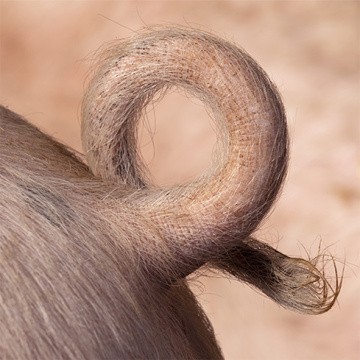How to strike a balance between sustainability, economic growth and individual feed efficiency in pig production systems? To answer this question, the Techna Group feed experts carried out a study on the technical and economic impact of three feeding strategies on pigs. Out of all the feeding strategies implemented, precision feeding programs turned out to be the most profitable and had the lowest footprint. This promising approach to pig nutrition is currently being pursued by new innovations, such as the conception of decision-support tools
How to apply precision feeding in pig production?
Emerging sustainable pig production systems are faced with key challenges such as the reduction of production costs and excess nitrogen excretions into the environment. Precision feeders for finishing pigs automatically provide daily tailored feeds to each pig in the population, by estimating a pig’s nutrient requirements each day. These feeding systems are used to provide pigs with a multiphase diet— this diet consists of a blend of two premixes that, combined in variable ratios, could meet the requirements of pigs.
The TECHNA group experts undertook a joint study with the French National Institute for Agricultural Research (INRA). The goal of this study was to assess the interest of these precision feeding techniques for reducing feed costs and the environmental footprint of pig-farming systems. Compared to a two-phase feeding program, precision feeding increased the margin over feed costs by 8% and reduced nitrogen excretion by 23%.

"Very efficient," "efficient," and "wasteful" pigs
As part of another study run by Techna, the variability of feed efficiency was also observed among different growing pigs of the same sex and genetic type who were all raised in similar housing conditions.
Feed efficiency refers to the efficiency with which pigs utilise dietary nutrients. From the analysis of fattening data collected from Euronutrition Research Center three categories of pigs based on their feed efficiency, emerged: these animals were either characterised as "very efficient," "efficient," and "wasteful" pigs.
The differences observed among various pigs through the early stages of fattening resulted in distinct fattening performance. Indeed, "very efficient" pigs had their FCR and nitrogen excretion reduced by 8% and 12% respectively through the entire fattening period as compared to "wasteful" animals. Some differences were also noted on carcass quality, as wasteful pigs had an 8% increase in carcass fat thickness. As a result, the carcass of wasteful pigs ended up having a lower economic value at the slaughterhouse.
The most efficient animals also had higher nutritional requirements than those whose potential was lower (see chart). Therefore close attention must be paid to the nutritional concentration of feed in order to meet the requirements of the most efficient pigs.

Decision-support tools designed for precision feeding strategies in pig farming
This study opens up new perspectives in the field of nutritional strategies for growing pigs. With all this in mind, the Techna group feed experts have been honing their craft in the design of decision support tools. The goal of these software tools will be to assist technicians and farmers in implementing precision feeding strategies. Analytical data collected continuously on pigs (automatic feeding systems, microchips...), now allow for a real-time monitoring of animals’ individual performance. Upstream calculation of performance indicators, at the beginning of the fattening period, could enable early detection of a pig’s potential to convert feed into weight gain.
Such software products could be used to design individualised feeding programs taking the differences in animals’ feed efficiency into account while aiming for the desired goals in terms of sustainability: the reduction of feed costs, environmental output and a lean carcass.
Are you interested in precision feeding? Do you want to assess the impact of feeding strategies in a pig production context? If so, do not hesitate to contact our experts. They will provide you with relevant information on this study and will do whatever they can to help you optimise your feeding programs.
Talk to our experts
Feedia embodies Techna's range of advice and solutions in breeding techniques and precision nutrition, serving the performance of production organisations, feed manufacturers and their breeder customers.

